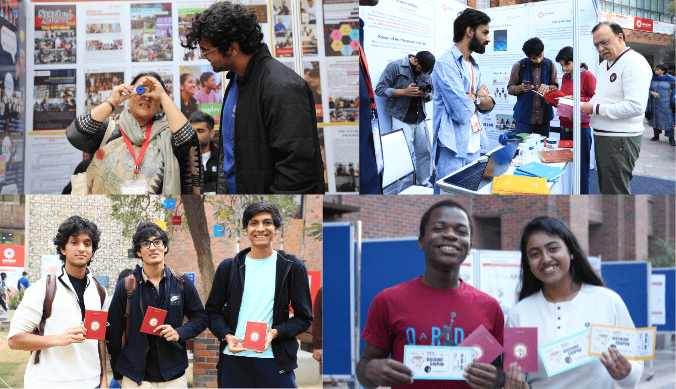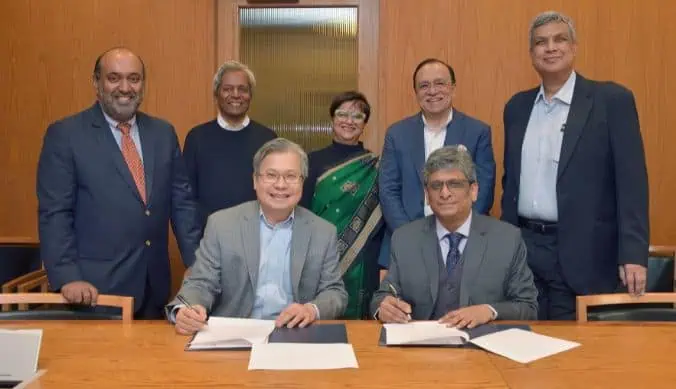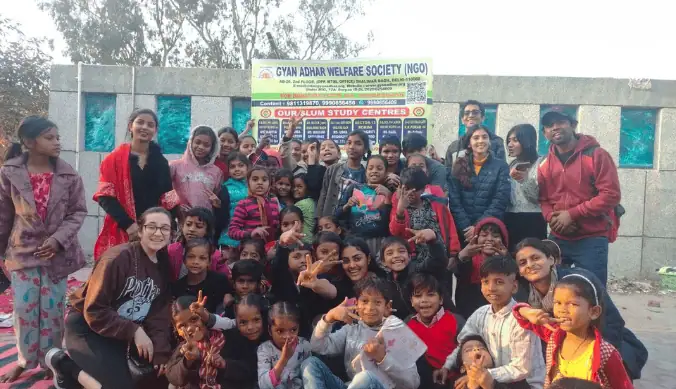Nanjangud Becomes India’s First Nagarsabha to Digitise Civic Data Through ‘Civinc’ Portal Incubated at Ashoka University
Civinc, developed by Ashoka alumna Aishwarya Sunaad, connects citizens with municipal officials, making governance more transparent and efficient.
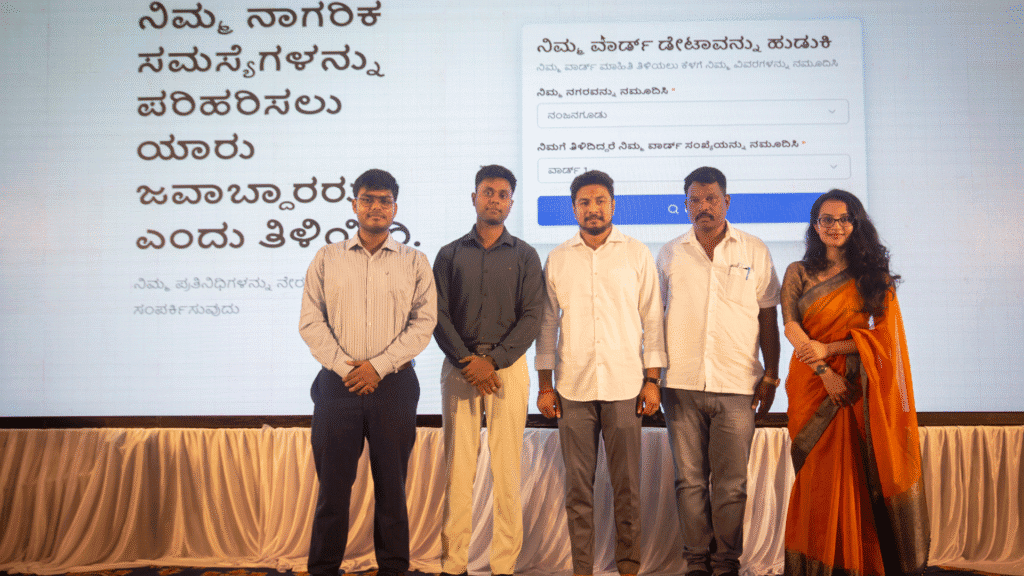
Ashoka University is proud to announce the launch of Civinc, a first-of-its-kind mobile application and online portal that provides information and contact details of municipal elected representatives and municipal employees in one seamless platform. The project was conceptualised by Ashoka University alumna Aishwarya Sunaad under the mentorship of Dr Debayan Gupta, Assistant Professor of Computer Science at Ashoka University. The portal was officially launched today in Nanjangud, Mysore district, Karnataka, by Shri Darshan Dhruvanarayan, MLA of Nanjangud Constituency in Karnataka, at a special event in the presence of the Municipal Council along with Mr Vijaya, Municipal Commissioner, Nanjangud City Municipal Council (NCMC), and Ms Mythravathi BN, Assistant Executive Engineer (Environment), NCMC, who is also the government POC for the project.
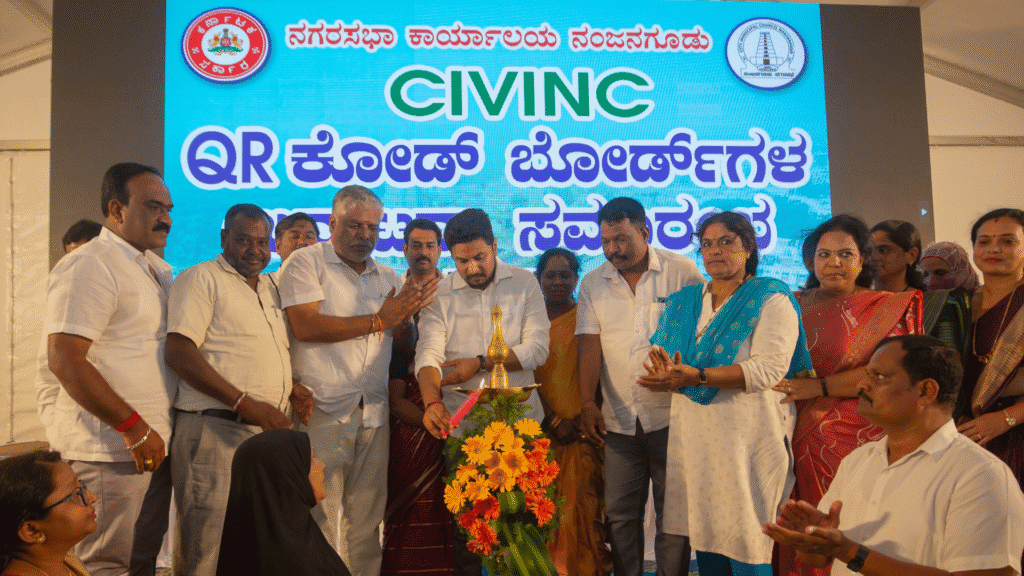
The southern pilgrimage city of Nanjangud has become the first Nagarsabha in the country to digitise its civic data, paving the way for non-metro cities and towns across India to adopt robust technology and innovation to make governance efficient.
Civinc, a portmanteau of the words ‘civic’ and ‘link’, has been designed to give citizens direct access to the contacts of elected corporators/ councillors, ward-level department heads and municipal employees responsible for essential public services. Covering functions from sanitation and garbage collection to road maintenance, property tax, and building licenses, Civinc replaces opaque grievance portals with direct, transparent connections between citizens and government functionaries.
Developed by harnessing the power of data, technology, and rigorous research, Civinc leverages ward-specific QR code boards placed across the city, which citizens can scan to get in touch with municipal employees handling specific civic issues. Users do not need to download the app separately to raise their grievances. The platform also empowers users to contribute data or flag outdated information, and features a first-of-its-kind performance review for municipal employees, thus enabling greater civic participation and enhancing administrative accountability.
Shri Darshan Dhruvanarayan, MLA of the Nanjangud Constituency and the youngest member of the Karnataka Legislative Assembly, who took the initiative to enable the digitisation of his constituency’s civic data, said “Nanjangud is proud to lead the way as the first non-metro city in the country to digitise its civic data. Giving citizens direct access to officials who are responsible for essential services makes governance more transparent, responsive and efficient. This is a youth-led project and I firmly believe that we should work collaboratively with the country’s youth to conceptualise interventions to solve problems, which is how this project was deployed in Nanjangud. It is also essential for local administrations to adopt high-end technological solutions to address issues and administrative bottlenecks in order to improve everyday lives. Therefore, there is a need for young people to innovate governance-related solutions specifically. Nanjangud is happy to set an example for collaborative problem solving of this kind, and demonstrate how local administrations can move towards technological optimisation and citizen led partnerships.”
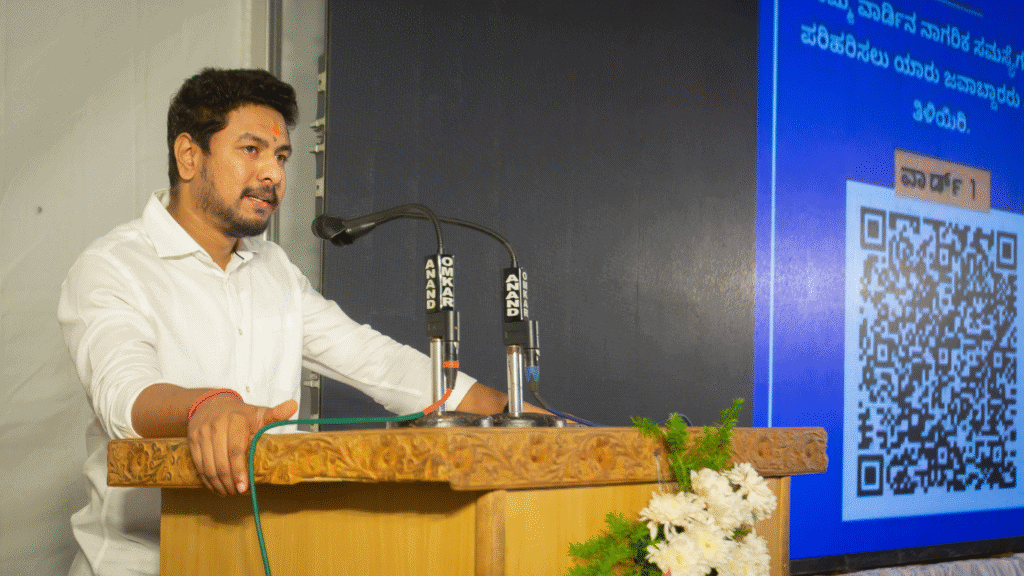
“The launch of Civinc is a moment of immense pride for us at Ashoka University. It is a product of Aishwarya’s deep commitment to address social problems leveraging technological interventions. I first met Aishwarya in my Foundation Course at Ashoka, where we encourage this spirit of cross-disciplinary thinking – seeing students turn this encouragement into something real is always wonderful. I am excited to see Civinc demonstrate how technology, guided by social insight, can transform governance and empower communities,” shared Debayan Gupta, Assistant Professor of Computer Science, Ashoka University.
Sharing her inspiration behind developing the app, Aishwarya Sunaad, an incoming scholar at the University of Oxford said, “Civinc was born out of my desire to address everyday civic challenges that became even more apparent during the Covid-19 pandemic. The majority of citizens do not have clarity on whom to contact for which issue, and so civic problems continue to remain unaddressed due to a lack of civic participation. And why should the conversation on technology and governance be focussed only around India’s metro cities? It is imperative that we innovate to make India’s non-metro cities tech-enabled. My time at Ashoka University gave me the mentorship and space to bring this idea to life, allowing me to merge insights from social anthropology with the power of technology. This project reflects how interdisciplinary learning and collaboration can create tools that improve access, empower communities, and solve real problems in governance.”

The Civinc portal, which was supported by the Isaac Centre for Public Policy (ICPP) at Ashoka University and the Mozilla Responsible Computing Challenge, was built wholly by students, with the end-to-end technology having been developed by Harsh Raj and Aditya Sinha, from the National Institute of Technology, Jamshedpur under the guidance of Dr Debayan Gupta (Ashoka University) while the concept development, research, and government outreach was led by Aishwarya Sunaad with inputs from Dr Mekhala Krishnamurthy, Associate Professor of Sociology and Anthropology at Ashoka University. Kishan MR and Nitish Kumar, postgraduate students, Jawaharlal Nehru University (JNU), undertook rigorous fieldwork in Delhi between 2022 – 2025 to understand the workings of the Municipal Corporation and the status quo and obstacles of accessing civic data on the ground.
Built through the process of co-production, Civinc addresses the challenges faced by non-metro cities with under-resourced technological infrastructure and limited manpower by partnering with local governments to host, review, and maintain civic data at zero cost. With this scalable model, Civinc is now poised to expand across the country, helping more towns and cities improve governance and service delivery through technology-driven solutions.
Study at Ashoka








